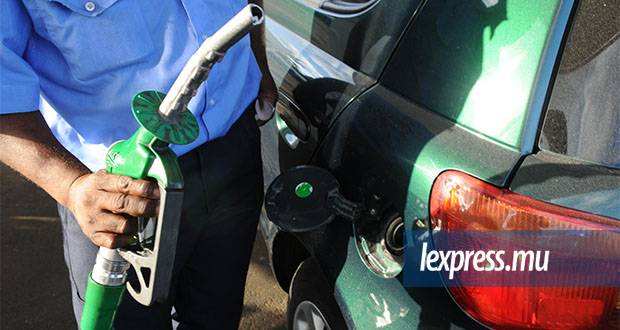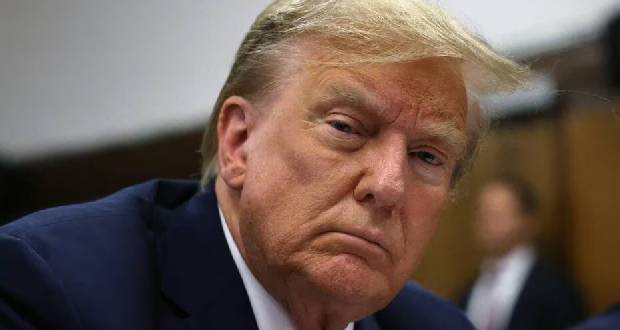Publicité
The Covid-19 crisis: Locking-in the opportunities for a sustainability transition
Par
Partager cet article
The Covid-19 crisis: Locking-in the opportunities for a sustainability transition

In the Chinese language, the word "crisis" is composed of two characters, one representing danger and the other, opportunity. Forecasts of the economic impact of the Covid-19 pandemic are growing increasingly frightful as the scale and severity of the contagion expand. Businesses are beginning to feel the impact of decreased demand and preparing to furlough employees. While the challenge of getting the coronavirus outbreak under control is indeed daunting, it merits recognizing that from a sustainability standpoint we may have a rare window of opportunity. The challenge will be to lock-in the reductions in energy and material utilization, the adoption of more sustainable lifestyles and the provision of a universal basic income that are already occurring and will probably intensify in coming weeks and months.
The Covid-19 could inadvertently contribute to meaningful progress toward meeting the goals of the Paris Climate Agreement and several of the United Nations Sustainable Development Goals. And most importantly it allows us an opportunity to try achieving prosperity without growth. The coronavirus situation provides, challenging though they may be, the following opportunities (some of the ideas are taken from a blog by Maurie Cohen on https://futureearth.org/2020/03/13/Covid-19-can-help-wealthier-nations-prepare-for-a-sustainability-transition/)
First, the Covid-19 pandemic is prompting a scaling back of working hours, either to adjust to slower business activity or because parents need to remain at home with young children due to school closures. Businesses and other organizations are being motivated to deploy flextime arrangements that allow employees to design their own schedules and to work remotely. These new routines will prove popular and be difficult to reverse as the crisis recedes. Sustainability scientists have suggested that we could shrink our working hours while simultaneously enhancing individual and societal well-being and reducing carbon emissions. Clearly, this possibility is not available to everyone, especially to workers in the informal sector relying on daily wages; the challenges of these workers relate to the next point.
Second, economic contraction is an opportunity to broaden experiments involving a universal basic income. During an extended quarantine, daily workers will face increasingly precarious circumstances. Political pressure to institute a more adequate system of financial security will mount as vulnerable populations and the unemployed struggle to maintain basic needs such as access to housing and nutrition.
Third, we will have to do things differently with innovation. Due to the pandemic, we are entering the era of the non-contact world. Supermarkets, shops and restaurants, for example, are shifting to delivery mode. And schools will be run increasingly on-line. We have already seen an upsurge in the virtual meetings cutting down travel, time and of course the emissions. Many technologies already present in the health-care sector are also going to be modified and integrated to conduct quick health scans, remote health monitoring and patient care using IoT and artificial intelligence.
Fourth, many retailers and consumers will in due course shift to sourcing products, especially food items, from local vendors. This trend will reduce resource throughput and contribute to more sustainable consumption patterns. There is also the prospect that over the longer term such developments might encourage the promotion of a new environment and trade agenda that reflects wider concerns about the need to foster less energy- and material-intensive lifestyles.
Fifth, we have an opportunity to pushing the agenda of a Circular Economy focusing on the informal sector in waste management. Waste segregation and collection, composting plants linked to agricultural farms and Material Recycling Facilities could be considered as important immediate interventions with potential for job creation. The Circular Economy concept is also underpinned by a transition to renewable energy sources and further development of Solar PV and energy from biomass on the island will also help save precious foreign currencies.
Sixth, this is the time to reflect and reconsider. We seldom asked ourselves questions such as what we do, how we do it and why we do it. A lot of our “routines” are being interrupted and we will be having less social gatherings and entertainment such as going to the cinema, restaurant, gym or music concerts. Many of us will start working from home. Suddenly, we will be having significant amounts of extra time. But how would we use the “extra” time? This offers a great opportunity to rethink our habits and routines and make changes to our daily life that we might actually want to follow even after the crisis is over. It has given us an opportunity to understand the human impact on this planet. The shutdown or dramatic decrease of industrial activities, virtually no road and air traffic and eroded tourism have improved the quality of the environment and noticeably so. So, while being in the midst of a crisis and the difference is going to be for a short term, we are seeing a future we want and the future we need. This is an opportunity to reconsider our development paradigms, lifestyles, and economic pursuits to reorganize such that there is a less impact on our planet. From the constrained living during the lockdown, we have to move to “sustainable lifestyles” and pay special attention to the poor and vulnerable.
Finally, and this is the point I will discuss a bit more lengthily, in the event that the Covid-19 induces a lengthy recession, the coronavirus outbreak may herald a tipping point at which we have to consider ways of achieving prosperity without economic growth. Prosperity consists in our ability to flourish as human beings –within the ecological limits of a finite planet. Most economic policymakers remain committed to maximizing the rate of economic growth but a vigorous debate has arisen about the feasibility and wisdom of creating and consuming ever more stuff, year after year. The idea of a non-growing economy may be an anathema to an economist. But the idea of a continually growing economy is an anathema to an ecologist. Professor Tim Jackson, a professor of sustainable development at the University of Surrey, in England published an influential book “Prosperity without Growth-Economics for a finite planet” just after the financial crisis of 2008. The publication was a landmark in the sustainability debate. It’s about taking simple steps towards an economics fit for purpose. It is difficult to do full justice to the depth and breadth of the book in this article, but here it is in 10 bullet points:
- Economic growth fails to deliver prosperity, now or in the future. Poorer nations urgently need further economic development, but do already-rich nations?
- The current turmoil and recession is the result of the sort of growth we were pursuing.
- Understanding prosperity as possessions or income has failed because, beyond a certain point, more of either does not increase people's life satisfaction or development indicators.
- The growth dilemma: The current economic configuration means that growth is unsustainable but "de-growth" (planned reductions in economic output) is unstable.
- There has been relative decoupling (less impact per unit of activity) in the recent past, but we need absolute decoupling (less impact in total).
- We are currently trapped in an "iron cage" of consumerism and production and consumption of novelty.
- A green stimulus is sensible in the short term but still assumes a return to continual consumption growth.
- New macroeconomics for sustainability would be based on stability, distributional equality, sustainable levels of throughput and protecting natural resources.
- The current culture of consumption will need to become a social logic of "flourishing within limits."
- Governments need to find a new way of ensuring stability that also secures the future of prosperity.
Fundamentally, the message of the book is this: If we try to build a sustainable future that requires everyone to play status games through material possessions – that is if we continue with our culture of consumerism – then we will fail. Jackson argues that one of the main problems with the current setup is that ever-increasing personal consumption gives the individual a social status that is utterly unrelated to its environmental and social cost. Breaking that link and substituting it with a system that gives value to family, health and happiness, among other things, he argues, is at the core of the revolutionary economic rethink he proposes. Lives of frugality and simplicity, with stronger communities and healthier relationships, will make us more genuinely prosperous than our present obsession with “material pleasures”, he argues.
Rising productivity in our current economic model is viewed as the engine of progress in modern capitalist economies. But if our economies fail to expand, unemployment rises. Higher unemployment reduces spending further and generates rising welfare costs. Higher welfare costs lead to unmanageable levels of government debt. Higher debt limits public spending, depressing demand yet again. The default wisdom is to get growth back as fast as possible. What, then, should happen when, for one reason or another, growth just isn’t to be had anymore? Due to the current crisis for example. One solution would be to accept the productivity increases, shorten the workweek and share the available work and improve the work-life balance. It’s certainly a strategy worth thinking about during these troubled times in consultation with all stakeholders for social stability.
But there’s another strategy for keeping people in work when demand stagnates. By easing up on the gas pedal of efficiency and creating jobs in what are traditionally seen as “low productivity” sectors, we have within our grasp the means to create employment, even when the economy stagnates. There are sectors of the economy where chasing productivity growth doesn’t make sense at all. What sense does it make to ask our teachers to teach ever bigger classes? Or our doctors to treat more and more patients per hour? Certain kinds of tasks rely inherently on the allocation of people’s time and attention. The caring professions are a good example: health/medicine, social work, education.
Expanding our economies in these directions has all sorts of advantages, the most important one being that the time spent by these professions directly improves the quality of our lives. For example, investing in education with small-sized classes and recruiting more teachers among unemployed graduates can only improve the quality of education and help the country in the future. Of course, a transition to a low-productivity economy won’t happen by wishful thinking. It demands careful attention to incentive structures such as lower taxes on labour and higher taxes on resource consumption. It calls for more than just lip service to concepts of patient-centred care and student-centred learning. It requires investment in skills and training. It has taken a crisis for the state to assume its original responsibility to protect citizens and it will be the state again who will have to devise the right policies to move towards prosperity without growth.
An observation frequently attributed to Winston Churchill is that we should never let a good crisis go to waste. The coronavirus outbreak is a deeply unfortunate situation that is unquestionably causing widespread suffering. While this is regrettable, we should not dismiss that the event provides a number of leverage points for opening pathways to a sustainability transition.
Publicité
Les plus récents






